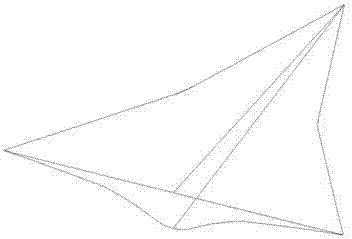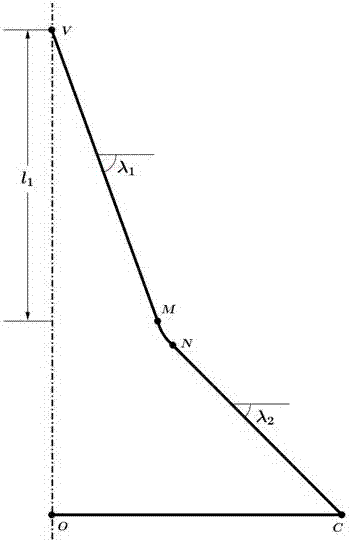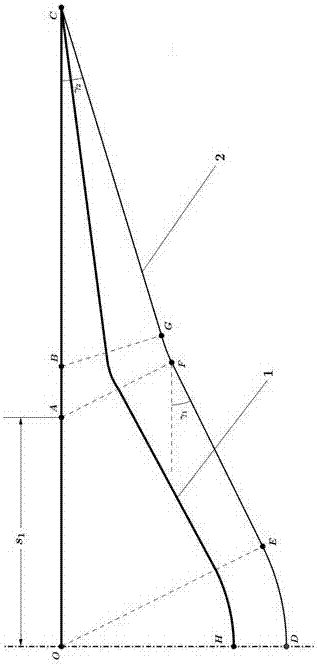Sharp-vertex dual-sweepback osculating-cone wave rider with transition sections
A waverider and transition section technology, applied in the field of apex double swept close-cone waverider, can solve the problems of reducing aerodynamic performance, large resistance, lift loss, etc., and achieve the effect of improving aerodynamic performance and favorable design
- Summary
- Abstract
- Description
- Claims
- Application Information
AI Technical Summary
Problems solved by technology
Method used
Image
Examples
Embodiment Construction
[0044] The present invention implements according to the following steps:
[0045] 1. According to the design requirements, the cruising Mach number and flight altitude are given;
[0046] 2. Determine the first sweep angle, determine the upper limit of the waverider sweep angle according to the cruising Mach number, and then select a reasonable sweep angle according to the design requirements;
[0047] 3. Determine the second sweep angle, the value of which is between the first sweep angle and zero;
[0048] 4. To determine the shock angle, first determine the range of the shock angle by the cruise Mach number and the first sweep angle, and then select a reasonable shock angle according to the design requirements;
[0049] 5. Determine the fuselage width corresponding to the first sweep angle, and determine the fuselage width corresponding to the first sweep angle according to the fuselage length and the first sweep angle;
[0050] Six, specify two control parameters of the t...
PUM
 Login to View More
Login to View More Abstract
Description
Claims
Application Information
 Login to View More
Login to View More - R&D
- Intellectual Property
- Life Sciences
- Materials
- Tech Scout
- Unparalleled Data Quality
- Higher Quality Content
- 60% Fewer Hallucinations
Browse by: Latest US Patents, China's latest patents, Technical Efficacy Thesaurus, Application Domain, Technology Topic, Popular Technical Reports.
© 2025 PatSnap. All rights reserved.Legal|Privacy policy|Modern Slavery Act Transparency Statement|Sitemap|About US| Contact US: help@patsnap.com



